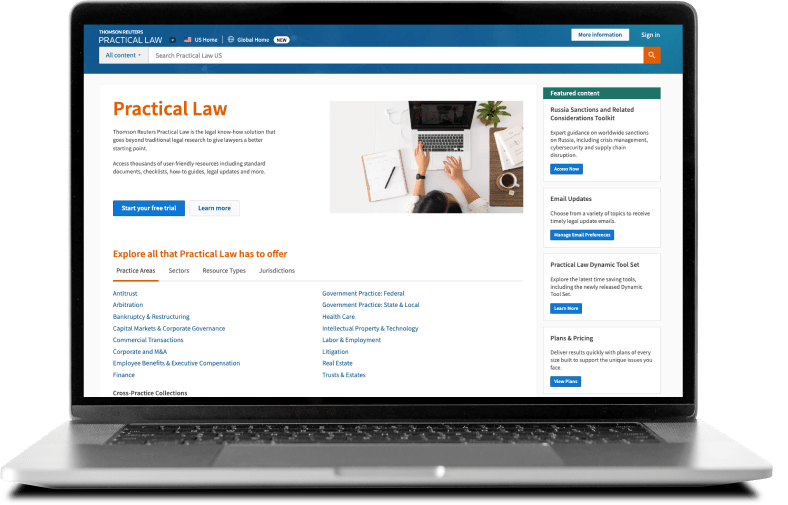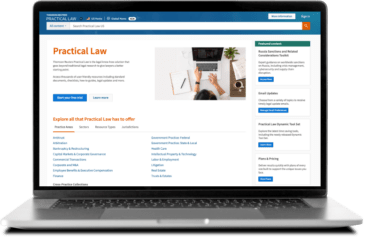I’ll get back to you on that
Everyone likes to know the answer to questions that come their way at work, none more so than in-house lawyers. Lawyers take special pride in being able to respond to practically any question, on any topic, at any time. They can do this because they are, typically, very smart, well-read, and at ease with murky situations. However, occasionally, and usually at the worst possible moment, someone in the business will ask an in-house lawyer a question and they will have no idea what the answer is. When faced with a question you don’t know the answer to (especially when time is short) here are a few strategies to help you navigate this unfamiliar terrain:
It happens to everyone
I have been a lawyer for over thirty years and an in-house lawyer for most of that time. I can tell you from personal experience that not knowing the answer to a question happens to everyone. Without fail and without exception. So, if it does happen to you the first thing to keep in mind is that it is okay not to know everything. No one, not even if you graduated number one in your class at Harvard and clerked on the Supreme Court, can possibly know all the answers to every question that comes their way over the course of any legal career. It’s just not possible. The other piece of (good) news is that no one expects you to have all the answers, all of the time. What they really want is to feel assured that you will get them the answer and get it to them quickly. In other words, “I’ll get back to you on that.”
Two paths
There are two ways the “I don’t know the answer” problem can erupt. The first is when the question comes to you via email, voicemail, Teams/Slack or a similar manner. When this happens, you usually have the luxury of responding that you’ll get back to them as soon as you can, and then go look for the answer – having a reasonable amount of time to do so. For the purposes of this article, we are going to focus on the second way this problem can surface, i.e., you are in a meeting and get asked a question you do not know the answer to – or only have a few minutes to prepare for an unexpected meeting. While the second scenario is slightly better than the first (because you can do some very quick research), they both can be problematic if you do not handle them correctly.
The checklist
When you are faced with this problem, the steps you must take can be set out in a four-point checklist:
Be Prepared.
Whenever you attend a meeting, spend some time in advance thinking about the types of questions you may be asked. Why were you invited to the meeting in the first place? That should be the biggest clue about what questions might come your way. Time permitting, jot down a few anticipated questions and the answers. Or if the topic is broad, find a quick source of research that you can tap before you go to the meeting and bring whatever you can as part of your materials as a “cheat sheet.” Similarly, if you are presenting at a meeting, spend time anticipating the questions that may come up (and avoid adding superfluous information in your presentation that can draw questions that divert from the real point). While you cannot anticipate everything, you can do some basic prep work.
Don’t Bluff.
Regardless of the above, there will be times when you simply do not know the answer to a question. Do not try to bluff your way through it and pretend like you know what you are talking about. First, the answer is probably wrong (which can lead to numerous problems down the road). Second, it will be apparent to everyone that you do not know the answer and that you are digging a hole for yourself. Not a great image to project. Instead, if you do not know the answer to a question, simply acknowledge that fact and commit that you will get the answer as quickly as possible. Consider a response like this:
That is a very interesting and challenging question. I don’t have a good answer for it top of mind. I’d like to spend a little bit of time researching it and thinking about it and then I’ll get back to you as soon as possible as the question deserves some considered thought.
That’s about as good as you can do with the situation. However, if there are pieces of the question you do know the answer to you can give a partial answer and note that you will need to do some further research on the rest. For example:
I know that in most states what you are proposing is generally okay, though there are some data privacy concerns here as well. There is usually a lot of nuance to work through depending on the exact facts. I am not sure about how courts in [State X] see it and would like to spend some time digging into that and the privacy issues and come back to you with a more complete answer.
Again, this is about as much as you can do so long as you stay in your lane with what you do know and lay out the need for further research.
Access Your Trusted Sources of Information.
If you find yourself in the “I don’t know the answer” situation you need to quickly rely on your most trusted sources of information. There are several you can go to, e.g., a book, the Internet, ChatGPT (despite its shortcomings), colleagues in the department, or outside counsel. The better news is that you can go to a source that is always on point, current, and designed specifically for in-house lawyers who need information in a hurry and in multiple formats (e.g., checklists, summaries, toolkits, templates, presentations). I have used Practical Law to grab a checklist before heading to a meeting on a topic I was not that familiar with and to get to the answer quickly after promising I would follow up asap. It is by far the single best resource available to an in-house legal department.
 | Get answers with Practical Law Practical Law has 90,000+ total resources across 17 practice areas and (unlike ChatGPT) over 650 full-time experienced attorney editors keeping these materials up to date daily. |
Follow-Up as Promised.
Most importantly, be sure you go find the answer (from whatever source) and follow up quickly – no one will forget that you promised to come back with the answer. Depending on your audience, e.g., the C-Suite is a higher priority than others, slot the follow-up work into your to-do list and get cracking. As you put the answer together think about the most likely follow-up questions. Try to anticipate those in your response (versus waiting on someone to ask). The business will notice and appreciate it. Lastly, consider whether the department needs to add more expertise, i.e., is the question a harbinger for legal issues to come? If so, start to build out the right expertise. Practical Law can help there too.
_________________________________________________________________
It’s not fun for in-house counsel to not know the answer to a question, but it will happen to you at some point. When it happens, follow the plan above. Most importantly, consider the resources you wish to have on hand to help you navigate this situation. At the top of your list should be Practical Law. You can get a free trial here.










